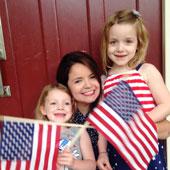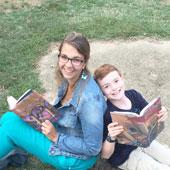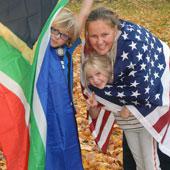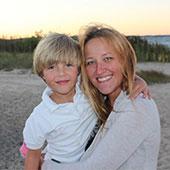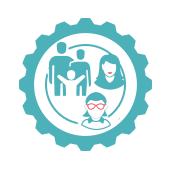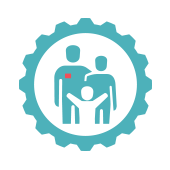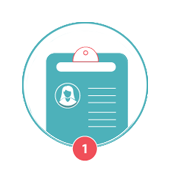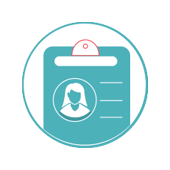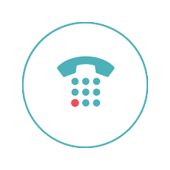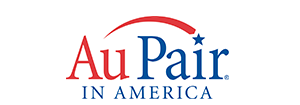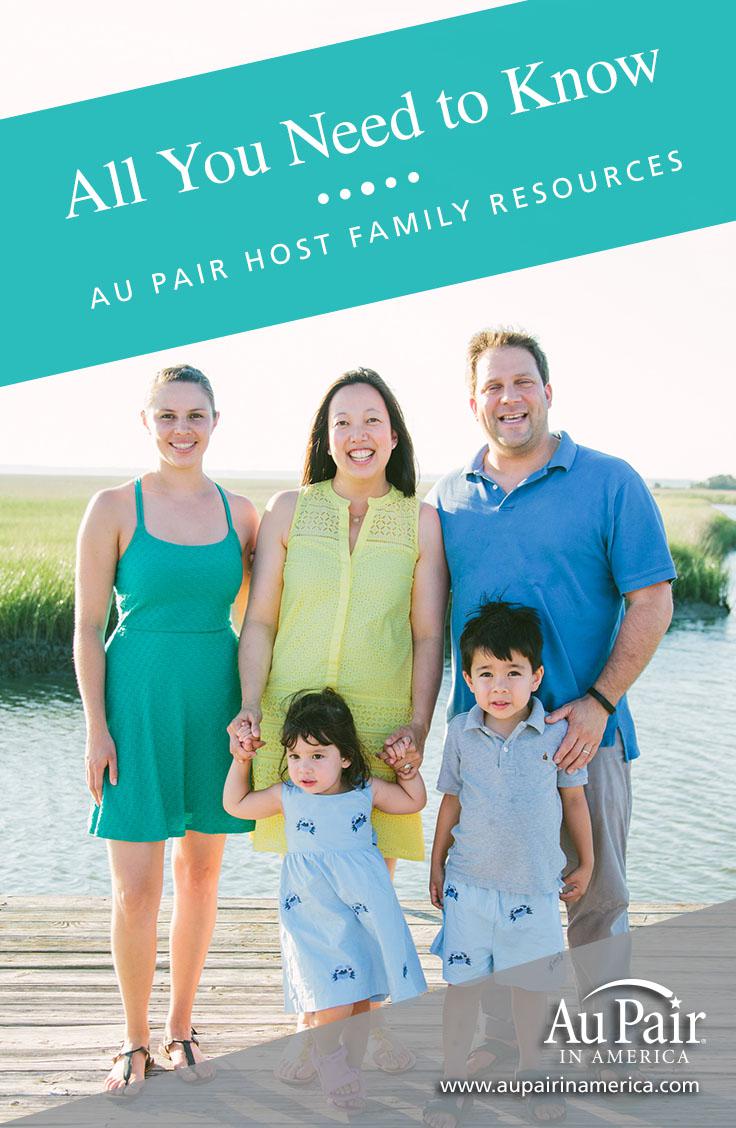AU PAIR HOST FAMILY RESOURCES
Welcome Host Families!
Welcome host families! This page is meant to help you host your au pair more easily and successfully and to ensure you have a simple spot to obtain information and get your questions answered quickly. Bookmark it for easy access! If the question you need answered isn’t here, we’re just a quick click away: Contact us now.
Emergencies/Critical Concerns
Illness, Accidents or Medical Emergencies:
Au pair accident or medical emergency:
If an accident or medical emergency arises with your au pair, handle it as you would for any family member. Please contact your local communication counselor as soon as possible so that APIA may assist you in supporting your au pair and family during this situation. Your au pair should sign any consent forms that are required to enable the host to have easier access to medical information in order to keep other family members and APIA informed on the au pair’s status. If the au pair cannot sign the form, APIA has a signed release on file for treatment (it is included as part of the agreement the au pair signs in the application process). Under that scenario, call the 24-hour emergency service at 1-800-928-7247.
Medical emergency with one of your children:
As part of your orientation with your au pair, you should go over how you want emergency medical care handled in your absence. Download and complete this medical authorization form and keep it in an easy place to remember. Instruct your au pair to bring this form with her in a medical emergency. Create a list of medical emergency phone numbers (your doctor, local hospital or urgent care, trusted neighbor, etc.) and place in a prominent area where anyone can see or reach.
Household emergencies:
While an au pair’s primary responsibility is the children, she also assumes some responsibility for your home and your car in your absence. To prepare for any contingencies in these areas, discuss a general protocol for handling certain potential issues (suggestions below) while giving your au pair a tour of your home upon arrival. Some suggestions:
- Show the au pair the circuit breaker, the main water shut-off and how to turn a fuse on and off.
- Provide a complete list of phone numbers of any services you use regularly (oil company, water company, electric utility, etc.). Place this in a prominent area where anyone can read or reach.
Download a list of helpful questions to ask in case of a household emergency.
Car accidents:
Car accidents can be disorienting. Make sure that your au pair knows where to find the registration and insurance information for the car she is driving. Make a list of what the au pair should do in case of a car accident, such as what information to gather from the other driver so that a complete report can be made to police and insurance company, and place it in the glove compartment of the car. This list of helpful questions to ask in case of a motor vehicle accident is a good place to start.
Lost Passport
If an au pair’s passport is stolen, they must immediately file a police report. If the au pair lost it, then they don’t need to tell the police. In both cases the host family should call the Stamford office to speak to the Compliance Officer. Then you may need to assist your au pair in contacting the consulate (or embassy in Washington, DC) of the au pair’s home country and start the process to replace the passport.
Lost Visa
Losing a passport also means the visa is meaningless. To replace the visa, the au pair must return to her home country after receiving a new passport. Once there, the au pair must go to the U.S. embassy and apply for another visa. This has to occur in person. There is no guarantee that the au pair will receive another visa, so this is a big risk. While the au pair can remain in the U.S. and finish the program without a visa, they cannot travel outside the U.S.
Given the high stakes here, it is best to advise your au pair to use a different form of identification whenever possible and leave the passport safely at home. The au pair should also make a copy of the passport and visa and keep it in a safe place.
General Information/Questions
Au Pair in America and EduCare in America are programs designated by the Department of State to sponsor an au pair/companion on an Exchange Visitor Program intended to provide its participants an opportunity to “learn about American culture, improve English language skills and to assist host families with child care while living with American families as a guest member ‘on par’ for a 12 month cultural exchange.”
Since 1986, the program has evolved, and legislative authorization continues to distinguish this program from other in-home child care options. The government has issued regulations that establish the framework for recruitment, placement and monitoring of au pair/companion and host family relationships.
The regulations are included in the Host Family Guidelines for a Successful Year available on your host family site. The Code of Federal Regulations can also be found online; au pair regulations are sited at section 62.31.
The Social Security Administration will issue a “Valid for Work Only With DHS Authorization” social security card to any au pair/companion participating in a Department of State-authorized au pair program. To apply for a restricted working social security card, the au pair must go in person to the local Social Security Office in their community. They must go at least four business days after their arrival in the United States with the following documents:
- Valid Passport
- DS 2019 form
- I-94 card print out from the cbp website
- Proof of identification that is at least one year old (e.g. passport, driver’s license, birth certificate)
Social Security will verify the au pair’s status in SEVIS before a social security card number can be assigned. If there is a discrepancy with information, the Social Security Office may deny the au pair a social security card and request a manual verification of data, which would take additional time.
If the Social Security office says that they cannot issue a social security card and returns the application and documents, please call Fiorella Ciralli at Au Pair in America, (800) 928 -7247, ext. 5087, or email apiacompliance@aifs.com for further assistance.
Education
Since the au pair arrangement is also by law an educational and cultural agreement, all au pairs must fulfill educational requirements during their stay in the U.S. Host families must help provide information to au pairs about the options available to them for fulfilling these requirements.
- Au pairs on the Standard and Extraordinaire programs are required to take 6 credits (or the equivalent of approximately 80 hours in the classroom) over the course of their year. EduCare Au Pairs are required to take 12 credits (approximately 160 hours).
- Standard and Extraordinaire Au Pairs who extend their visa are expected to take an additional 3 credits for a 6-month extension and 6 credits over a 9- or 12-month extension. EduCare Au Pairs must take 6 credits for a 6-month extension and 12 credits over a 9- or 12-month extension.
- Classes must be taken at an approved, accredited program or institution. A local university, college or continuing education program sponsored by a college often qualifies. Schools vary in what courses they offer, but most offer a wide range of choices. ESL is English as a Second Language, which usually includes placement exams.
- Online courses do not meet the educational requirement for au pairs, with a single exception. The UCLA APIA Advantage Course is a 19-week interdisciplinary online course for 6 credits. This course has been specially-approved by the U.S. Department of State to meet the educational requirement for au pairs. Unlike a typical online course, the blended online format of the APIA Advantage course allows au pairs to have face-to-face contact with their local communities. As part of the course, au pairs are required to do a Global Awareness presentation, volunteer at a local organization, and participate in historical and cultural activities. To find out more about the course, please visit UCLA Extension, or ask your local community counselor for details.
- Host families have certain financial obligations regarding their au pair’s educational goals. Host families pay up to $250 toward education for a six-month stay and $500 for a 9- or 12-month extension on the Standard and Extraordinaire programs. EduCare program families will pay $500 toward education for the 6-month extension and $1,000 for a 9- or 12-month extension. Host families reimburse the cost of tuition and related materials (books and supplies) up to $500 for standard and Extraordinaire Au Pairs and up to $1000 for EduCare companions.
- Host families also must provide transportation including gasoline, parking, or public transportation costs (if applicable) to and from the place of instruction. The cost of transportation is in addition to the $500 (or $1,000) allocated to tuition and related fees.
- Please check with your Community Counselor before registering to make sure all the coursework is in compliance with the education requirements. To get more information on education options in your state, please see our Education Links by State.
Being certified in basic first aid and CPR is important for au pairs. Classes are available all over the country in local hospitals and through the Red Cross, adult education centers and local YMCAs. Au Pair in America will pay for the cost of a class providing an au pair has at least six months left on her visa and is taking one of several approved child care/child safety related classes, such as Adult and Pediatric First Aid/CPR/AED. Au pairs should check with their Community Counselor and your host family before signing up. Au Pair in America will register the au pair directly. To locate a class, visit www.redcross.org/takeaclass.
Helping Your Au Pair Be Successful
Imagine coming to a new country and perhaps only speaking the language moderately well. Maybe it’s the first time you’ve traveled outside your country, and it’s likely the first time you’re going to spend a long time far away from family and friends.
While it’s exciting, it’s also probably scary for the au pair joining your family. The tips in this section are designed to give you some tools to help your au pair get acclimated and do the best job possible. That’s a scenario that works for everyone!
GETTING STARTED
Host Family Tips Page
This page offers a plethora of host family tips in one spot to help you prepare for your au pair’s arrival — everything from helping your au pair overcome culture shock to suggestions for how to handle to handle the holidays. This page is one you’ll refer to again and again during your au pair’s stay.
OVERALL CHILD CARE INFORMATION
Culture Quests
To give families insight into child care and cultural practices of au pairs from around the world, we have compiled country-specific information about child care skills, family life, driving skills, education, fun facts, and more.
Kids Culture Corner
This section can help your family prepare for your au pair by learning a bit about her country ahead of time. It’s also a link the au pair can use to play games and educate the family a bit more about her country once she’s arrived.
Activities for Kids
While your au pair may have plenty of childcare experience, it might only be with a particular age group. And even the most experienced caregiver runs out of creative ideas on any given day. This link breaks down by age and season ideas for fun activities with children.
Safety Tips
Make sure your au pair sees this page about general safety tips on everything from car safety to childproofing to weather safety.
Global Awareness
This program, sponsored by APIA, encourages au pairs to visit classrooms to teach others about their country and customs. It can be a great way for your au pair to learn more about your children’s school and the community too.
STAYING IN TOUCH
While mobile phones are ubiquitous these days, understanding the ins and outs of making international calls can still be confusing. Here are some helpful links to help both you and your au pair make calls more easily.
International Calling Codes
Everything you need to know to make that international call.
World clock
Not sure the best time to contact the au pair’s home country? This link can help.
STAYING CONNECTED
Calling home can be expensive for au pairs, remind them to use messaging and video apps available to them to keep costs down and allow them the opportunity to connect with family and friends back home.

